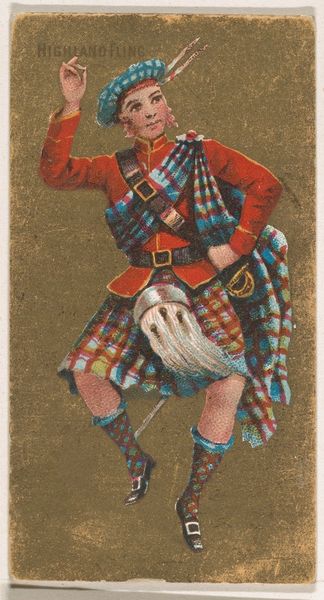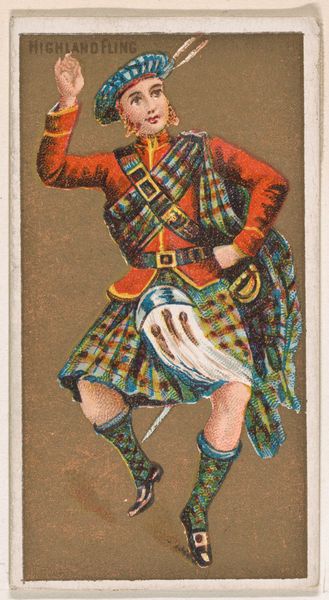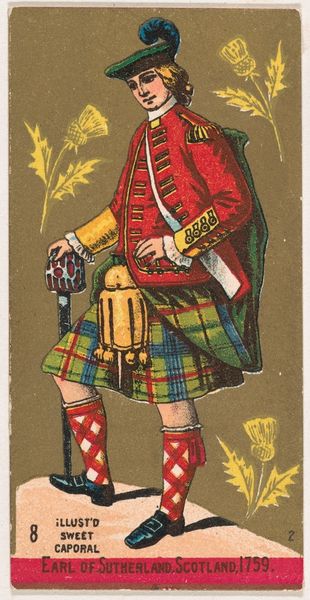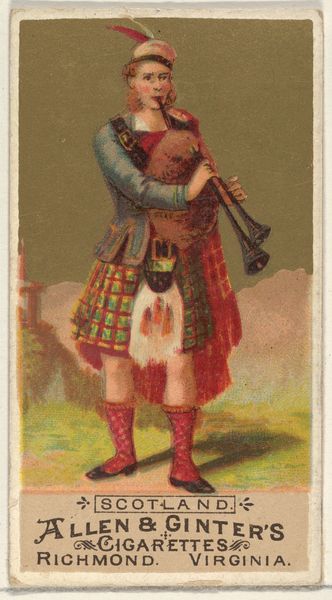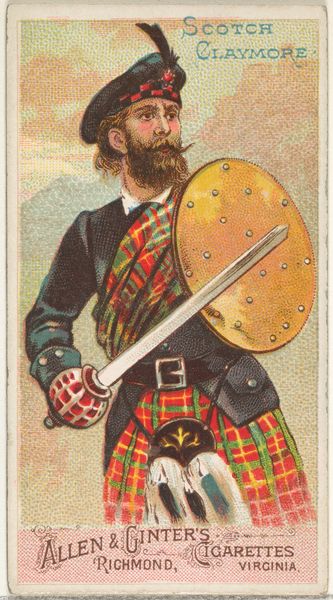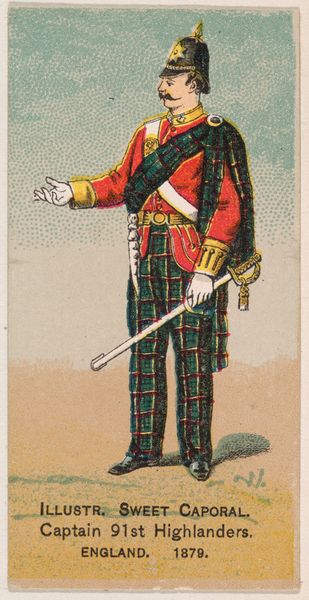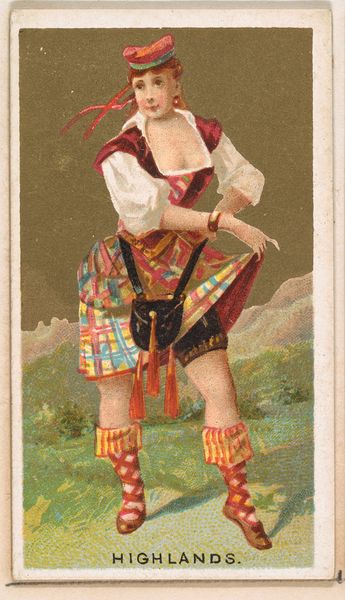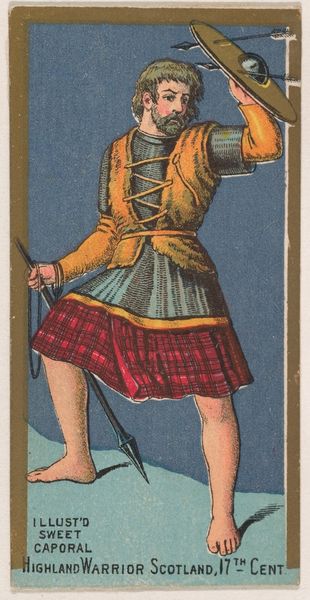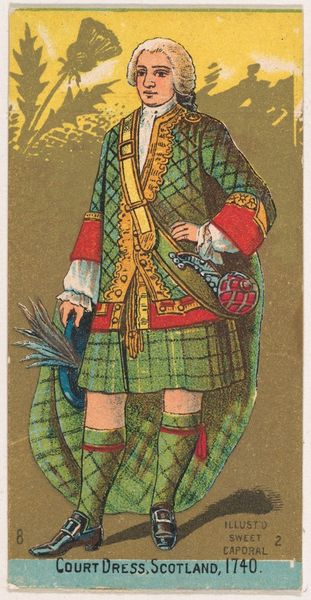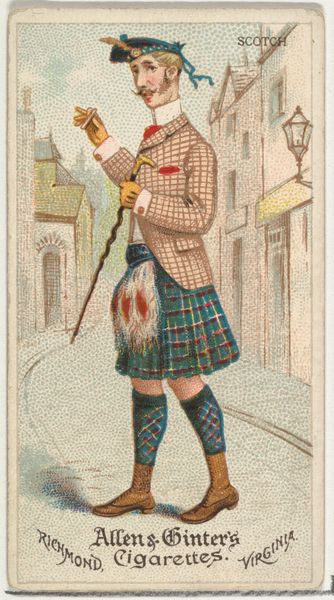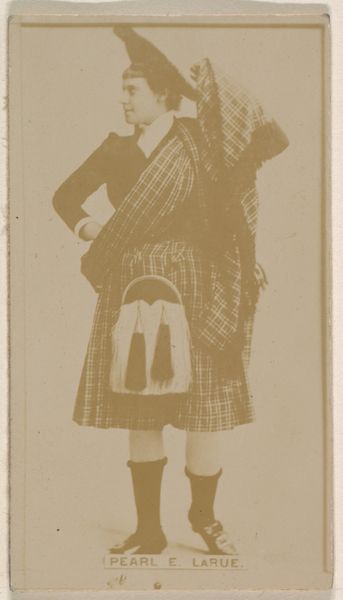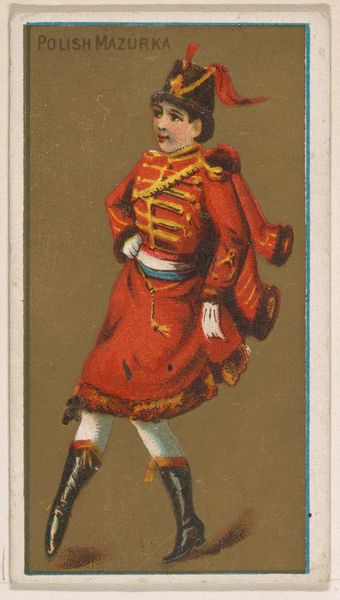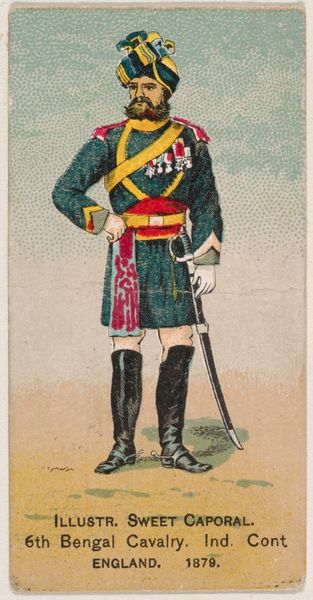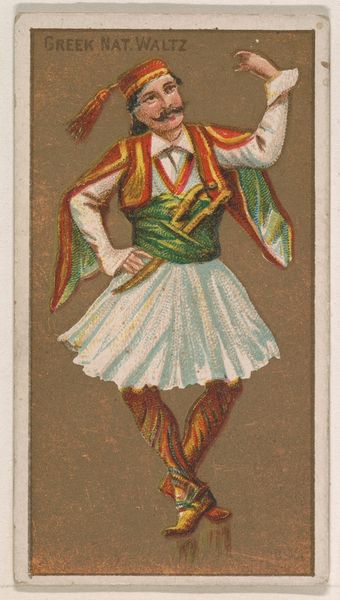
Highland Fling, from National Dances (N225, Type 1) issued by Kinney Bros. 1889
0:00
0:00
drawing, print, watercolor
#
portrait
#
drawing
# print
#
figuration
#
watercolor
#
coloured pencil
#
men
#
watercolour illustration
#
genre-painting
#
academic-art
Dimensions: Sheet: 2 3/4 × 1 1/2 in. (7 × 3.8 cm)
Copyright: Public Domain
Editor: Here we have "Highland Fling" by Kinney Brothers Tobacco Company, dating back to 1889. It's a colorful print; the dancer seems to almost leap off of it. I'm curious—how do you interpret this work in terms of its historical and cultural references? Curator: What strikes me first is how this image serves as a memory trigger, almost a postcard from a romanticized past. The Highland Fling itself, beyond being a dance, is a potent symbol of Scottish identity. The kilt, the colors, even the specific pose – all evoke a constructed idea of "Scottishness" that was particularly powerful in the late 19th century. Notice how carefully each element is rendered, almost staged, feeding into a desire for authenticity and connection to roots, even if that connection is, in part, imagined. Does the dancer remind you of anything familiar? Editor: Hmm, you mean besides a shortbread tin? I guess, there's something… theatrical about him. Like he's on display. Curator: Exactly. Consider the context: a tobacco card. These were designed to be collected, traded, consumed. This image of the Highlander became a miniature ambassador, a visual shorthand for exoticism and tradition that could be held in your hand. So, in a way, he *is* on display – carefully packaged for a particular audience. It makes one wonder, doesn't it, what stories and meanings we assign to these images, and what purposes they ultimately serve? Editor: So it's less about historical accuracy and more about projecting a specific image? That's definitely something to think about. I’ll never look at a souvenir the same way again.
Comments
No comments
Be the first to comment and join the conversation on the ultimate creative platform.
